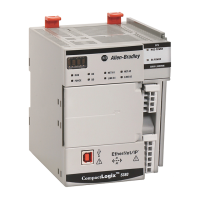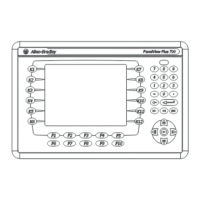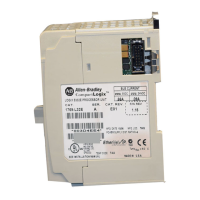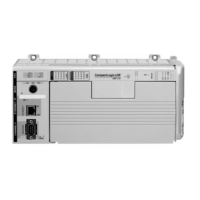Rockwell Automation Publication 5069-UM002A-EN-P - January 2019 199
Develop Control Applications Chapter 8
Send and Receive Messages
Messages transfer data to other devices, such as other controllers or operator
interfaces. The MSG instruction is a ladder logic output instruction that
asynchronously reads or writes a block of data to or from another module over
the backplane or a network. The size of the instruction depends on the data
types and message command that you program.
Messages use connection resources to send or receive data. Messages can leave
the connection open (cached) or can close the connection when the message is
done transmitting.
Messages can be unconnected or connected. Unconnected messages depend on
the availability of unconnected buffers in all devices through which the
message passes. Connected messages begin with a request to allocate
connection buffers in all of those devices, before sending the actual message. If
you choose to cache a connected message, the controller keeps the connection
open after the message is complete. Cached message improves efficiency if you
intend to send the message repeatedly.
Connected messages use connection resources. If the connected message is
uncached, the resources are used temporarily each time the message is
triggered. As long as a cached connected message remains in the cache, the
resources remain allocated and are not available for other messages. Cached
messages can get pushed from the cache if the application exceeds the cache
capacity of the controller.
Each message uses one connection out of the controller, regardless of how
many devices are in the message path.
For more information about how to use messages, see the Logix 5000
Controllers Messages Programming Manual, publication
1756-PM012.
Table 16 - Message Types
Message Type Communication
Method
Connected Message Message Can Be
Cached
CIP™ data table read or write Not applicable Configurable Yes
(2)
PLC-2®, PLC-3®, PLC-5®, or SLC™
(all types)
CIP No No
CIP with Source ID No No
DH+™ Yes Yes
(2)
CIP generic Not applicable Optional
(1)
(1) You can connect CIP generic messages. However, for most applications we recommend that you leave CIP generic messages
unconnected.
Yes
(2)
(2) We recommend that you cache connected messages that occur more frequently than once every 60 seconds, if possible.
Block-transfer read or write Not applicable Yes Yes
(2)
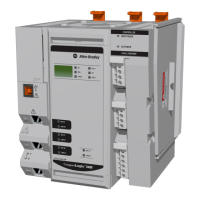
